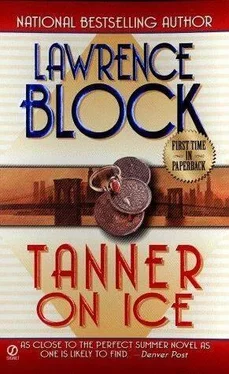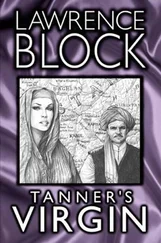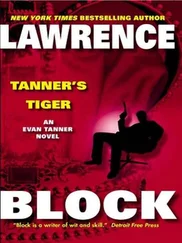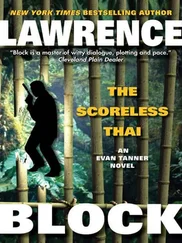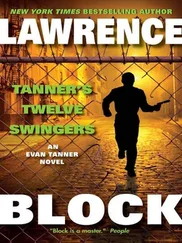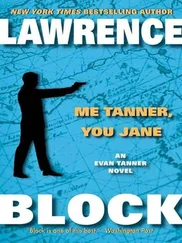But not every Burmese wore a longyi. The cops and the soldiers, I saw, were dressed like cops and soldiers anywhere. They had short-sleeved khaki shirts with epaulets, and they had square-toed brown half-boots, and they had squared-off peaked caps. And they were wearing pants, either black or khaki.
I guess a longyi wasn’t sufficiently military. I guess they figured the blood wouldn’t go gelid at the sight of a horde of men in skirts charging down a hill at you. I guess nobody ever told them about the Scottish Highlanders.
Still, I’m not sure it would work without bagpipes, and I didn’t even want to think what Burmese pipers might sound like. What I did know was that the fellow standing in front of me looked very military indeed, and efficient, and quietly intimidating.
“I am so sorry,” he said, in excellent English. “You would not want to walk down this street.”
“I wouldn’t?”
“It is no street for sightseeing,” he assured me. “There are many fine things to see in Yangon. Have you been to Shwe Dagon Pagoda?”
“I’ve just come from there.”
“Then you must go to Sule Pagoda,” he said. “Shwe Dagon is the soul of Yangon, and Sule is its heart. A hair from the Buddha is preserved there.”
“I see.”
“And Botatamy Pagoda. Also a hair of the Buddha!”
“He must have had a lot of hairs,” I said.
“And the Bogyoke Aung San Market. So much to see there! So many things to buy! Perhaps you will have a longyi made for you, so that anyone who sees you will think you are a native of Myanmar.”
He laughed, so I would know he was joking, and I laughed, so he would know I got it. He named other tourist attractions – he was a regular Insight Guide – and I just stood there and nodded and smiled.
“If you wish to go to any of these places,” he said, “I will be most happy to provide directions.”
“I have a map,” I said.
“I could trace the route for you,” he said.
I told him that was very kind of him, but actually I just wanted to walk down this one particular street.
“You would not like it,” he said. “There is nothing to see, nothing to do. No shops! No pagodas!”
“Even so-”
“No restaurants! Perhaps you are hungry, you would enjoy a meal. There are many fine restaurants in Yangon. Most people like the Chinese restaurants the best, but there are also fine Myanmar restaurants. Do you like Myanmar food?”
“Very much, but-”
“Or there is Indian. Or other cuisines.” He smiled broadly. “But there is not a single restaurant on this unimportant little street.”
The trick, I could see, was to keep me out without quite saying so. I had read about this particular ethnic tic, and the Burmese even had a word for it. An-ah-deh, they called it, and it means never giving no for an answer by convincing you that what you want – and can’t have – isn’t worth having in the first place, and that you don’t really want it. I’m not sure whether they do it to avoid losing face or to keep you from losing face, but this fellow was certainly doing it, and trying to win the argument with him was beginning to seem a lot like trying to blow out a lightbulb.
“I was told,” I said, “that a certain woman lives on this street.”
“If you would like to have a woman,” he said, “this is not the street for it. You would not find a woman on a street like this, and if you did you would not care for her. She would not be clean.” He leaned forward, lowered his voice. “I know where you can find a woman. Very young, very pretty, very exclusive.”
“I don’t want a woman. I-”
“You prefer a boy? I don’t blame you. Of course there is no homosexuality in Myanmar, but for a man of refinement such as yourself, certain arrangements can be made. But you could never find a boy on this poor street.”
“I don’t want a boy.”
“Then you are a normal man! I am delighted to hear it.”
“I believe Aung San Suu Kyi lives on this street.”
“Ah,” he said. He looked disappointed in me.
“And I would like to see where she lives,” I said.
“There is nothing to see,” he said. “She is all the time inside her house. Before, she would come to the front door and talk to people, but she no longer does this.”
Because SLORC wouldn’t let her, I knew.
“Because it is not safe for her,” he said. “So many patriotic citizens of Myanmar wish to do her harm!”
“Why would they want to harm her? Her father-”
“A great hero,” he said solemnly. “But she left Myanmar, you see. She brought back ideas that are not what the people of Myanmar wish. Thus she stays inside for her own protection.”
“It would be interesting,” I said, “just to walk by and look at the house.”
“But it is not interesting,” he said. “I have seen it, and it is a most uninteresting house. Here in Yangon, where there is so much of genuine architectural interest…”
Well, you get the picture, and so did I. The street was closed to traffic, and this fellow was on hand, a holstered automatic on his hip, to deny access to pedestrians. He seemed capable of inventing endless ways to say no without saying no, but I didn’t want to test his commitment to an-ah-deh to the limit. Sooner or later he would run out of patience. Sooner or later he would haul out his gun and shoot me.
Years ago, before the big wave of federal civil rights legislation, before the sit-ins and the protest marches and the Mississippi summer, states in the American South had a variety of ingenious ways to deny the vote to black citizens. The literacy test was a popular one, and in one Georgia county, so the story goes, a black man, recently graduated from a prestigious Northern university, presented himself to register to vote. “All you have to do,” the local official explained, “is read a paragraph or two of this here newspaper and tell us what it means.”
And he handed him a Chinese newspaper.
The prospective voter looked it over. “Well,” he said, “I can make out what it says, all right. It says no nigger’s gonna be voting in Georgia this year.”
The story ran through my mind as I smiled at the officer. “It sounds,” I said, “like a very boring street with nothing to recommend it.”
“It is precisely that,” he said.
“I thank you,” I said, “for saving me from a pointless and unpleasant walk. I can much better spend my time visiting a pagoda.”
“An excellent idea,” he said. “It is said that there are three things a man must do before he has fulfilled his purpose in life.”
He paused, and I obligingly asked what they were.
“He ought to take a wife,” he said, “and father a son. And then he must build a pagoda.” He smiled and bowed. “Visit as many pagodas as you can,” he said. “But remember – no shoes!”
There was another way around to Suu Kyi’s house, but I didn’t even bother to check it out. They wouldn’t seal off the street at one end and leave it open at the other. And, if by some miracle I did get through, how would I explain myself if I happened to run into my little an-ah-deh master? He would not be happy, not after all he’d gone through to save face for both of us, and I could see how I’d be hard put to explain myself.
I walked for a while, and wound up on Maka Bandoola Street, past Sule Pagoda (which really was at the heart of the city) and the city hall. A block or so beyond it I gave up waving away the moneychangers and let one of them lead me into a tea shop, where I drank tea and changed a hundred dollars’ worth of FEC into kyat. (They make you change three hundred dollars a person on arrival at the airport, but the official exchange rate is robbery. However, you can take dollar-value Foreign Exchange Certificates instead, and later on you can change those quite openly on the black market, which is what I was doing.)
Читать дальше
